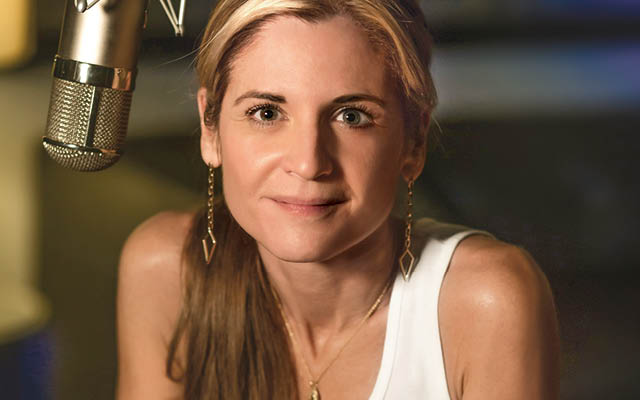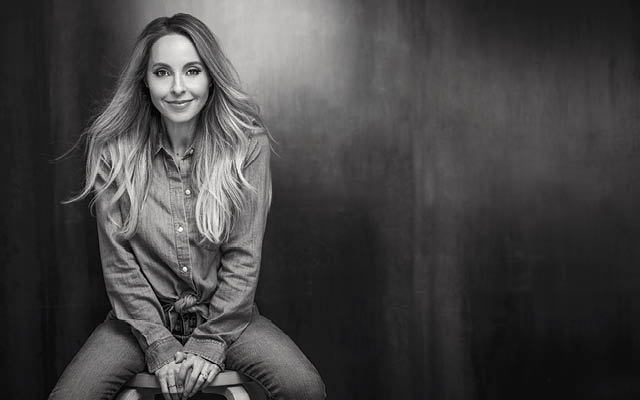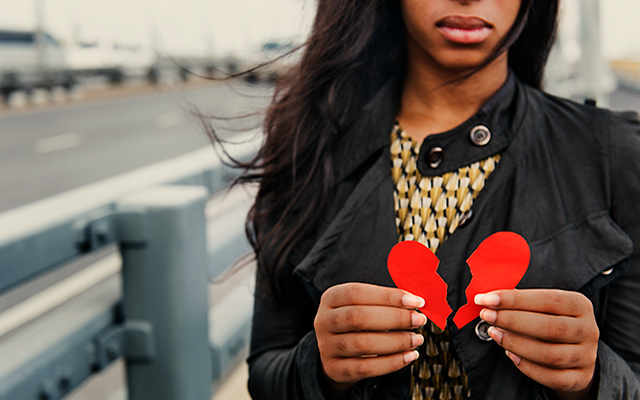Glennon Doyle is no stranger to seismic life shifts. She has overcome addiction. She has witnessed the breakdown of her first marriage and attempted to rebuild it, following her husband’s infidelities. While still married to the father of her three children, she fell in love with a woman. She questioned her religion and redefined her faith. She dared to reimagine what it means to be a family, and what it means to heal her wounds and learn from her scars.
These events defined Doyle in her 20s, 30s, and now 40s. They’re threads that, pulled out and woven together, compose her best-selling memoirs, Carry On, Warrior and Love Warrior.
Her third memoir, Untamed, released earlier this year, didn’t exactly pick up where her earlier books left off.
A series of personal essays presented out of chronological order, the book addresses how women become tamed, much like caged cheetahs trained to do tricks in the zoo. It focuses on how they, like cheetahs, never truly lose their wildness.
Untamed tells the story of Doyle as a mom who accepted suffering in her marriage for the sake of her kids before separating from her husband to show her kids how to live fully. It tells the love story of Doyle and her now wife, former soccer star Abby Wambach.
It tells the story of a woman who believed herself to be broken and crazy, who learned to trust herself. It explores how emotions are life’s guideposts and how our imaginations connect us to reality and to each other.
The book was primed to be another bestseller. But as Doyle prepared for her book tour in March, COVID-19 threw a wrench in her plans.
The pandemic sent Doyle and her team into service mode. Writing, after all, is only one of her passions. She’s also the cofounder of Together Rising, a nonprofit that serves as a bridge between people who want to help but don’t know how and those who are on the ground doing the work during crises of all kinds.
Reunifying children and their families at the U.S.–Mexico border, supporting Syrian refugees, and building shelters for LGBTQIA+ teens (one of the largest and fastest-growing homeless populations in the country) are among the “big projects” that Together Rising has aided.
“But what’s always been our heart is just one family or woman writing to us at a time and saying, ‘I need help getting food on the table.’ ‘I need help keeping my lights on.’”
The organization has raised $25 million since its inception in 2012, for projects big and small. Notably, the average donation is just $25.
“It’s the honor of my life,” she says.
In light of “the corona,” as Doyle calls it, she and her team prepared to quietly say goodbye to Untamed’s hoped-for success.
But the book was a hit: It debuted at No. 1 on the New York Times bestseller list and has been a fixture on the list for months.
Its central message — “The braver we are, the luckier we get” — seemed to provide an inspirational toehold for readers at a time when many struggled (and still struggle) with the tragedies of illness, death, joblessness, and socioeconomic disparities tied, in large part, to race, gender identity, and sexual orientation. Many more also faced (and still face) the quieter, but still potentially devastating, effects of isolation, grief, and uncertainty.
“It is sort of like we all got stuck with ourselves in this quarantine,” she explains. “And Untamed is about what happens when you’re stuck with yourself. It’s about finding transformation and hope and laughter inside stillness.”
“There has never been a time in my life where I have experienced deep grief and have not come out the other side of it completely new and fresh and wiser.”
Experience Life | It feels like 2020 has been demarcated by grief. How can grief guide us, collectively?
Glennon Doyle | There has never been a time in my life where I have experienced deep grief and have not come out the other side of it completely new and fresh and wiser and stronger and deeper and softer and more peaceful and more powerful. Not ever. No times.
Not when I’ve lost people I love. Not when I’ve lost relationships I cherish.
In that way, I have come to see grief as a cocoon. It’s just so dark, and there’s nothing to be done, other than just let yourself get completely obliterated. You become something completely different.
I don’t know what the world will become next, but I have learned to trust pain and grief. Not in the way that I think I know how to fix it. But I have hope because I think that this forced grief, this forced surrender, will turn us into whoever we will be next. I think we will be softer and more connected and wiser, which makes me have great hope for whatever’s next.
EL | There’s a wonderful chapter in Untamed in which you explore imagination, not as a way to escape reality, but as our service to the world — that it is how we take the things that are inside of us and connect to what is outside of us.
GD | Imagination is not just a bridge to creation — it’s a bridge to compassion. I remember one of my kids coming home and just being so frustrated because this kid in their class would never do his homework, so the class wouldn’t get the pizza party or whatever. My kid was like, “Why can’t you just do your homework?”
And so I started asking, “Why do you imagine that Tommy — I’ll just call him that — isn’t doing his homework? What do you imagine Tommy’s house might be like? Do you imagine that Tommy’s mom is sitting next to him making him do his homework, like yours is? What do you imagine?”
This idea of imagining over and over again takes us out of the place of judgment and onto this magical bridge. Instead of standing there and looking in judgment, you’re spiritually changing places. You begin to be able to see the world from the other perspective, and that softens you.
My favorite is when people refuse to step on that bridge. Think of the refugee crisis, for example. When people don’t want to feel the heartbreak of that, what they will say, nine times out of 10, is, “I cannot imagine putting my child on a boat” — like, it’s hilarious.
I’m like, I bet you can’t! I bet you won’t, because if you could imagine it, you would not be acting like such an a**hole right now.
Instead of saying, “I can’t imagine,” actually stop and imagine it. Imagine what it would take for you as a parent to have to do that, and then imagine having people on the other side of safety stand in judgment instead of arms wide open.
EL | One of the threads throughout Untamed is this idea of gaslighting.
GD | The gaslighting of women is universal. It’s constant. It’s from every direction. Women are told in a million different ways they’re just crazy: “You’re emotional. You’re hysterical. You’re a bitter, angry woman.”
Every time we can imagine something different for ourselves, every time we feel that inner longing of No, I want more for my relationship, my marriage, my family, my community, my nation, we are trained to be grateful. I should be grateful. I should just be grateful. It’s good enough. It’s almost like a superstition.
Gratitude is a beautiful thing until it becomes a deterrent for growth. We can get grateful for what we have and we can honor our imaginations and our desires. When we can imagine more, we can say this is a sign I might be meant for more.
There does need to be more humility, and that humility needs to be on the part of the people in power. The rest of us need to stop worrying so much about being humble, say the thing, and let it burn.
EL | I want to acknowledge that we are two white women having this conversation. You write about systemic racism in the book and argue that being a “good person” doesn’t really count for much.
GD | I think as a memoirist right now, it would be unthinkable to me to write a book about examining self and culture and not include in it the context in which I live and operate, which is a context of white supremacy. Some of the most important work of my life has been the unlearning of what the world taught me about whiteness being better than blackness. That white bodies are more important than Black bodies, that white minds are sharper than Black minds, that white women are better than Black women.
The more that I returned honestly to myself and examined what I’ve been taught through media, through culture, through education, through familial things, through all of it, the truer and more obvious that becomes to me.
I don’t have any space or time anymore for any white person who says, “I’m not racist.” That reveals nothing to me except that you are completely unconscious. We are all breathing the same air, and the air in this country is white supremacy. So, to me, there’s no more “Are you a racist or not?” It’s “Are you conscious enough to know that you have racism in you, or are you not?”
It’s an essential part of every woman’s liberation — no matter how uncomfortable and painful it is, because it’s always uncomfortable — to liberate her mind as much as possible from these ideas so that we can join in the work of liberating lives and bodies of everyone in our human family.
Hear From Glennon
Hear our full interview with Glennon Doyle on the Life Time Talks podcast.




This Post Has 0 Comments